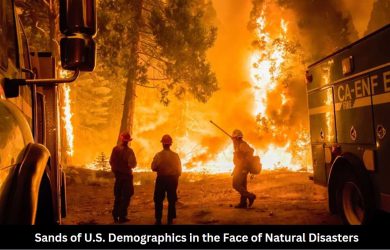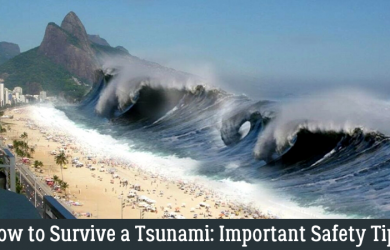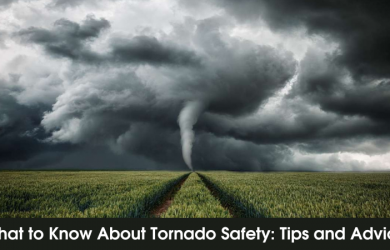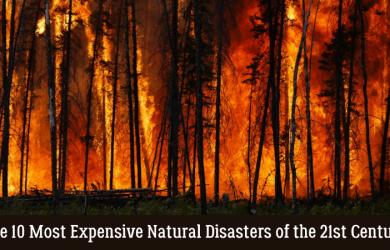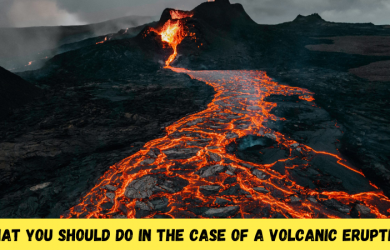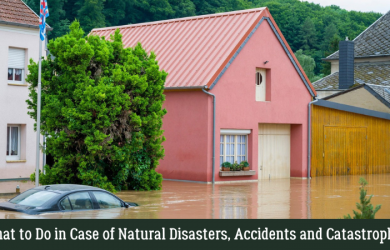Natural Disaster Help: Ways to Provide Emergency Aid to Survivors
Natural disasters occur in different parts of the world almost every day, and their number is increasing every year. Every day, hundreds of people are left homeless. You can help them! Below are the top 5 ways you can help people who have been affected by natural disasters.
Donate to accredited disaster relief organizations
Good deeds are easy to do. The easiest way is to choose charitable foundations that provide disaster relief worldwide in response to earthquakes, tsunamis, volcanoes, tornadoes, hurricanes, etc.
You can help regularly or one-time, donate money through one fund or several at once. Even $100 a month can change a lot. Small but regular donations help foundations plan their work, launch long-term programs, and ultimately save those who need help.
We recommend helping through well-known funds and not transferring to personal cards of strangers or using bank details taken from fundraisers on the street. This will help avoid scammers or unscrupulous people, and the money will definitely not be wasted. The foundations know how to distribute funds among the people who need emergency aid and urgent care, and their work is transparent. In addition, most foundations have been in the sector for many years and have already helped millions of people.
Here are some of the most popular organizations:
- United Way
- Team Rubicon
- The Humane Society of the United States’ Disaster Relief Fund
- Feeding Texas
- Houston Food Bank
- Galveston Food Bank
- Corpus Christi Food Bank
- Coalition for the Homeless of Houston
- Airbnb
- GoFundMe
- Portlight
- Texas Diaper Bank
- Star of Hope Mission
- Hope for Haiti
- UNICEF USA
- GlobalGiving
- Direct Relief
- Samaritan’s Purse
Send goods and supplies to loved ones in affected areas
Your closets probably have a lot of unnecessary things lying around that another person can give a second life. Do not be lazy – you will not only get rid of the trash and do a general cleaning in the wardrobe but also give warmth to people who do not have money to buy clothes. Believe us, such things do not go unnoticed – next time fate will make a gift to you!
You can send household items, clothes, shoes, bedding, children’s items, personal hygiene items, as well as drinking water in original packaging.
Usually, non-profit organizations have distribution centers where you can bring things.
Some of these organizations have branches in remote areas, some of them accept things by mail or through parcel machines. This is convenient if you have a few things you can send, and you live in a small town or rural area.
State social assistance organizations can also collect clothes for those in need. There are such organizations in every region, but not all of them accept things, so you need to call in advance and find out about this possibility.
You can search for a suitable organization in your area online.
Organize a fundraiser
The Internet has opened up new opportunities not only for businesses but also for people who find themselves in a difficult situation, and digital marketing helps not only to sell and earn money but also save lives.
People who find themselves in difficult life situations do not always give up, very often they pull themselves together and come up with various ways to get out of a difficult situation.
In a crisis, fundraising helps – this means attracting financial or information resources to achieve non-commercial goals, including charitable ones.
The search for funding sources is facilitated by developing Internet technologies, such as social networks, many website builders, online payment systems, etc. This is how many people think about fundraising.
At first, it seems that it’s easy to ask for money on the Internet, but in reality everything turns into a huge number of abandoned personal sites and pages on social networks. Most of them ended their activities with information about the start of fundraising for a specific charitable purpose. What is the problem with these abandoned personal online resources? We think that there was no detailed plan for the promotion of these fundraising projects.
The most commonly used communication channels are:
- a site dedicated to a specific person and the current life situation, forcing to attract finance from outside;
- social networks: Facebook, Instagram;
- online crowdfunding platforms;
- email-mailings to the database of people who are listened to in society or who are potential donors.
To obtain a visible effect, it is better to use all four channels. For greater efficiency, it is better to combine them with offline tools, such as personal offline communication with donors, holding charity events.
If you cannot organize a fundraiser, you can also raise funds using crowdfunding websites like GoFundMe.
Give blood
Disaster victims often require donated blood for transfusions. At a time, the donor donates 450 milliliters of blood. This seemingly small volume can save the life of not even one, but three people.
Only a healthy person can be a donor. Those who are having HIV or hepatitis and also suffer from chronic diseases cannot donate blood. These people may have bacteria in their blood, making it unsuitable for transfusion.
Women can donate blood up to four times a year, men up to five. At the same time, at least two months must elapse between blood donations. Platelets are allowed to donate up to 10 times a year, plasma – no more than 20 times with an interval of two weeks.
Someone tolerates donations well and has a normal hemoglobin level. In this case, the next donation can be made in two months. Everything is decided individually. However, even a single donation is already an opportunity to save the lives of one, two or even three people.
Professional donors usually lead a healthy lifestyle, follow the regime and eat right.
You can find a blood center online.
Donate your time
In the current situation, one cannot stand aside and ignore people who have been affected by natural disasters. Sometimes it may seem that being in the United States is impossible to help those who are now suffering from the earthquake in Japan, but this is not at all the case. Many organizations regularly need volunteers to help natural disaster survivors.
In your free time, you can help settle the arrived natural disaster survivors, receive and sort humanitarian aid that will go to natural disaster zones, and prepare new shelters for settlement.
Thus, caring people can join in saving lives. Organizations accept every caring person who is ready to help.
You can volunteer for GivingWay, VOAD, Ready.gov, All Hands and Hearts, FEMA.gov, etc.


